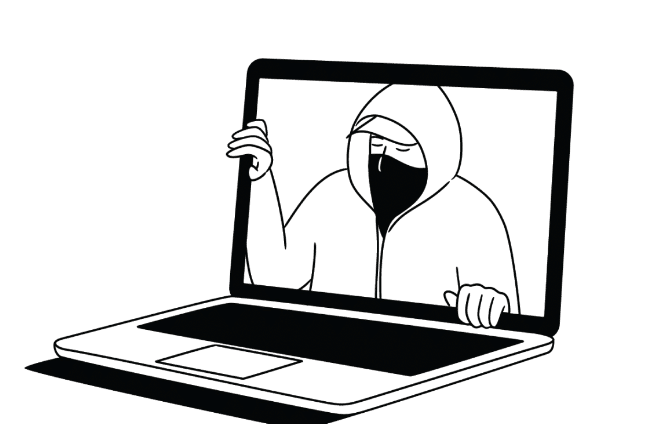
Why Every Computer Needs a Firewall: Protecting Your Data and Privacy?
In today’s digital age, we rely on computers for almost everything from connecting with loved ones to conducting business transactions. But with all the convenience comes the risk of cyber threats and attacks that can compromise our data and privacy. That’s why every computer needs a firewall – a crucial line of defense against malicious actors trying to gain unauthorized access. In this blog post, we’ll delve into the importance of firewalls in protecting your sensitive information from hackers, viruses, and other online dangers. So sit tight and get ready to learn how you can safeguard your digital life!
Table of Contents
What is a Firewall?
How Does a Firewall Work?
The Different Types of Firewalls
Network Firewalls
Application-Level Gateway Firewalls
Why You Need a Firewall?
How to Set Up a Firewall?
Conclusion
What is a Firewall?
A firewall is a device that helps protect your computer from viruses and other malware. It does this by blocking incoming connections from the internet that may be harmful. A firewall can also help prevent data theft and keep your computer safe from hackers.
How Does a Firewall Work?
A firewall is a network security system that monitors and controls incoming and outgoing network traffic based on predetermined security rules. A firewall typically establishes a barrier between a trusted internal network and an untrusted external network, such as the Internet.
When data enters or leaves the trusted internal network, the firewall examines the data and allows or blocks it based on the security rules that have been configured. By controlling traffic in this way, a firewall can help protect sensitive data from being accessed by unauthorized users.
In addition to examining traffic data, some firewalls also have the ability to inspect the content of data packets for malware or other threats. If a threat is detected, the firewall can take action to block the packet from entering or leaving the network.
Firewalls can be hardware-based devices that are installed between a network and its connection to the Internet, or they can be software-based solutions that are deployed on individual computers or servers. Some firewalls are designed to work with specific types of networks or applications, while others are more general purpose.
The Different Types of Firewalls
There are three primary types of firewalls: network firewalls, application-level gateway firewalls, and host-based firewalls. Network firewalls are the most common type of firewall and are typically deployed at the boundary between an organization’s internal network and the Internet. Application-level gateway firewalls offer more granular control over traffic by inspecting and filtering traffic at the application layer.
Host-based firewalls are installed on individual hosts and can provide protection for those specific systems.
Network Firewalls
Network firewalls are designed to protect an entire network from external threats. They work by filtering traffic based on a set of rules that allow or deny traffic based on the source and destination IP address, port number, and protocol. Network firewalls can be hardware- or software-based, and they are typically deployed at the perimeter of a network.
Application-Level Gateway Firewalls
Application-level gateway firewalls offer more granular control over traffic than network firewalls by inspecting and filtering traffic at the application layer. This type of firewall is typically implemented as a proxy server that sits between clients and servers, forwarding requests only after it has inspected them for malicious content. Application-level gateway firewalls can be hardware- or software-based, but they are often deployed as hardware devices because of their high performance requirements.
Host-Based Firewall s
Host -based firewall
Why You Need a Firewall?
Most people understand that they need a firewall to protect their computer from outside attacks, but many don’t realize the importance of a firewall in protecting their data and privacy as well. A firewall acts as a barrier between your computer and the internet, allowing you to control what information is shared with the outside world. This can be especially important if you have sensitive information on your computer, or if you simply want to keep your data private.
Without a firewall, your computer is essentially an open book for anyone who wants to access it. This means that hackers and other malicious users can easily gain access to your system and steal your data. Even if you’re not storing anything sensitive on your computer, it’s still possible for someone to track your online activity and collect personal information about you. A firewall can help prevent this by blocking unwanted traffic and only allowing approved connections.
In addition to protecting your data, a firewall can also improve your computer’s performance. By blocking unnecessary traffic, a firewall can help reduce the amount of resources your computer uses. This can lead to faster speeds and improved stability.
Overall, a firewall is an essential tool for keeping your computer safe and protecting your privacy. If you’re not already using one, now is the time to start!
How to Set Up a Firewall?
In order to set up a firewall, you will need to purchase a router and install it between your modem and computer. Once your router is installed, you will need to configure it to block all incoming traffic that is not specifically allowed.
There are many different routers on the market, so be sure to do your research to find one that meets your needs. Once you have your router, refer to the instruction manual in order to properly set up and configure the firewall features. If you have any questions, contact your ISP or a professional IT consultant for assistance.
Conclusion
In conclusion, we can see why it is so important to have a firewall on your computer. Not only can it protect your data and privacy, but it also helps to ensure that your computer runs smoothly. Firewalls are relatively cheap and easy to install, so there really is no excuse not to make sure you have one in place before using the internet or downloading any files onto your system. Take the necessary steps today and keep yourself more secure online!



